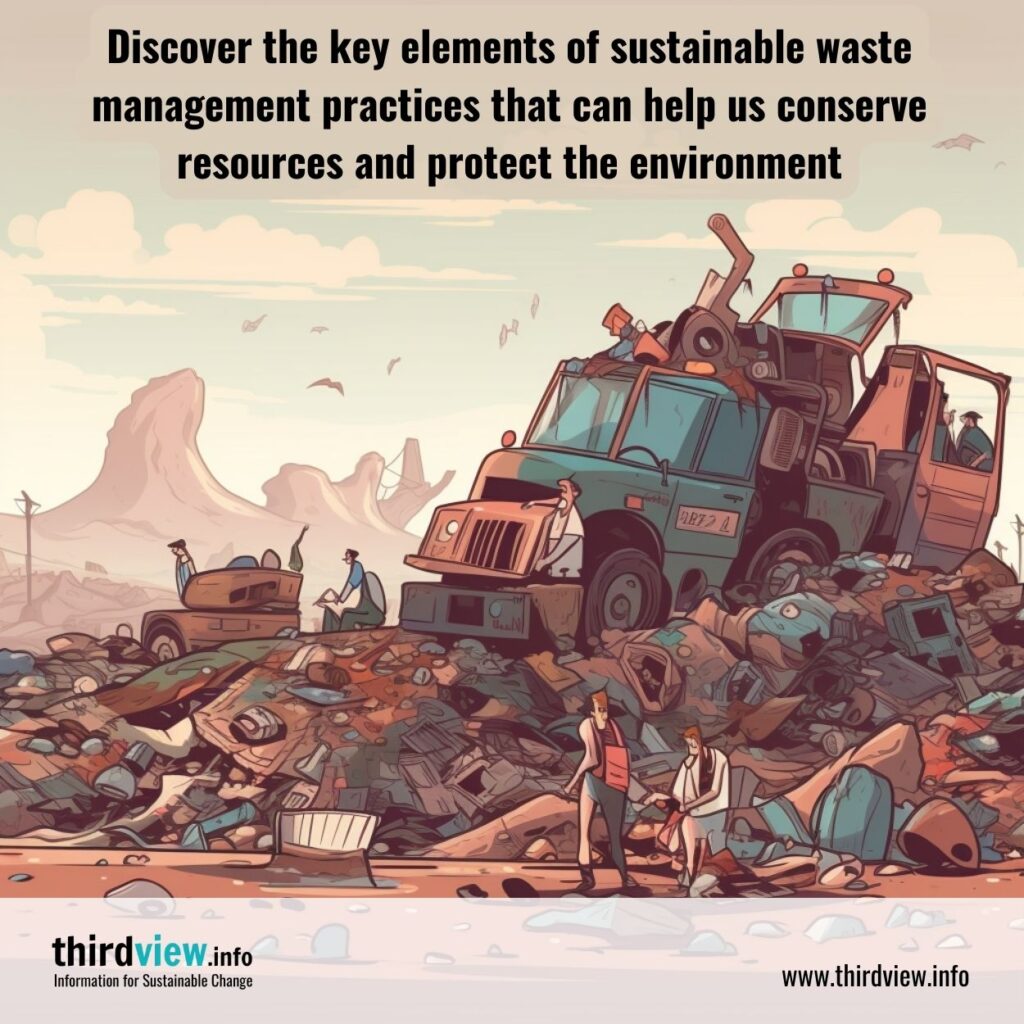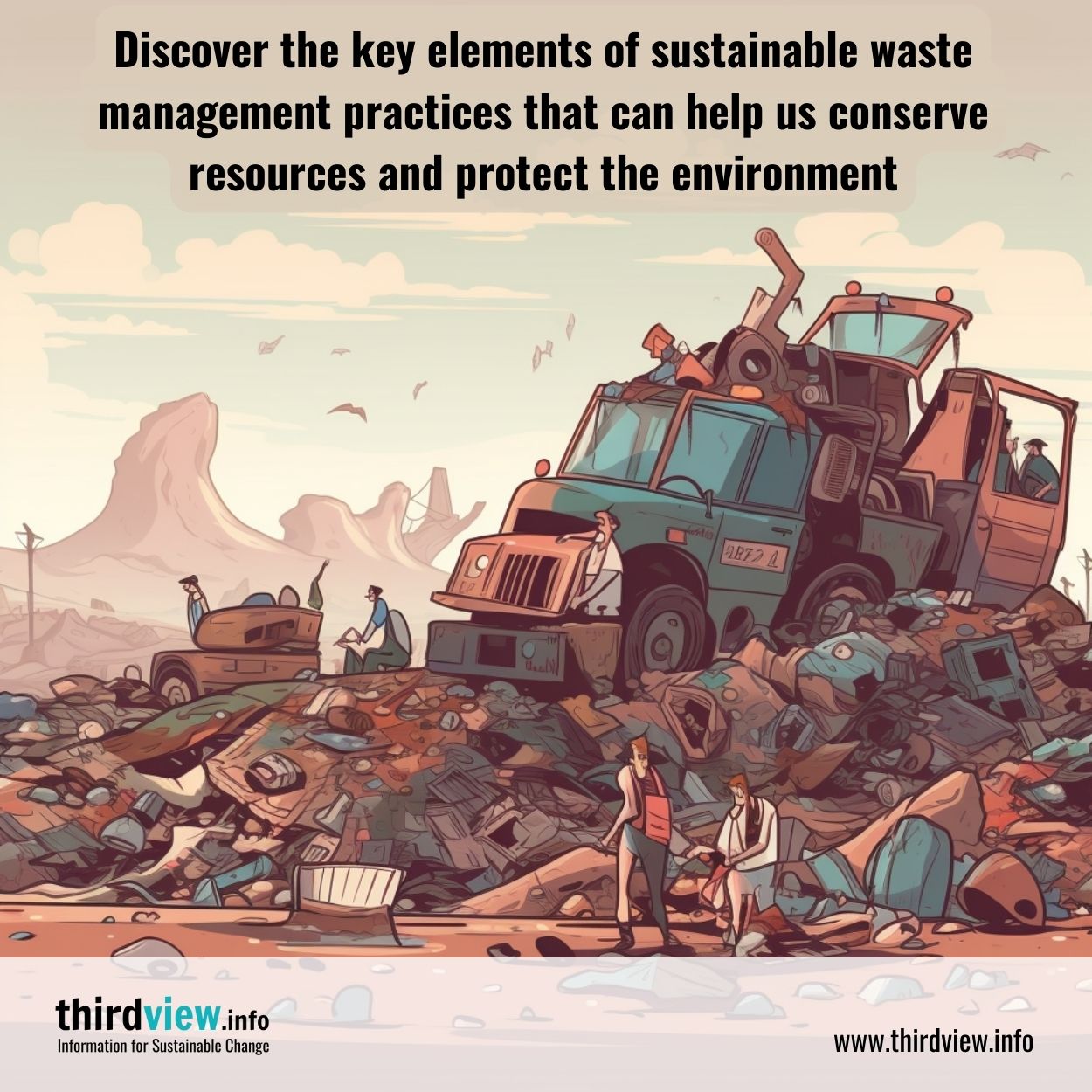As global citizens, we have been on a mission to reduce and manage waste to ensure a better tomorrow. In the past, waste was disposed of unsustainably, resulting in health problems and environmental degradation. More and more people are keen on dealing with waste in environmentally friendly ways, and that’s why developing sustainable waste management practices is a priority. This blog post outlines the essential elements of a sustainable waste management program that can help individuals and organizations conserve natural resources while keeping the planet healthy.
Understanding the waste hierarchy
The waste hierarchy is the best place to start when it comes to developing sustainable waste management practices. It ranks different waste management methods from most to least environmentally friendly, and the top is the prevention of waste generation which is the best option. After that, the use of waste for other purposes, such as recycling, composting, or energy recovery, is the best option. Lastly, if none of the above methods is available, then it is a responsible option to dispose of waste in landfills.
Developing a waste reduction plan
A waste-reduction plan can be an effective way to avoid waste at the source. It helps people understand what the top contributors of waste are and how to eliminate them. Individuals and organizations can start by identifying what wastes they produce and their sources. Next, they can develop initiatives that are effective in reducing or even eliminating them. Some common methods include reducing the use of single-use plastics such as bags and straws or encouraging the use of reusable options.
Recycling and composting
Recycling involves taking materials otherwise thrown in with the waste and transforming them into new products. It is such an efficient way of waste management that improves the environment while conserving natural resources. Composting is another form of waste management that utilizes organic waste products that can be used for agricultural purposes. Developing effective practices around composting and recycling can enhance the success of a sustainable waste management program.
Investing in waste-to-energy conversion
A sustainable approach to managing waste should include strategies for waste-to-energy conversion. Waste-to-energy technologies use waste to create useful products such as electricity, heat, or fuel. Advanced waste-to-energy systems mitigate environmental contamination risks as well as reduce greenhouse gas emissions that contribute to climate change.
Community education and awareness
Sustainable waste management programs require community participation and the right knowledge. People must be aware of how to correctly dispose of waste and the importance of recycling, composting, and reducing waste at the source. Educating the public through campaigns, workshops, and outreach can help communities understand the importance of sustainable waste management and the impact it makes.
The world is evolving to adopt more sustainable waste management practices to conserve natural resources and protect the planet. Countries, companies, and individuals play essential roles in this initiative. A sustainable waste management program should prioritize the reduction of waste at the source, and then, be complemented by initiatives that aim at recycling, composting, and even waste-to-energy conversion. Community participation and education are equally essential in building a more sustainable world. With a collective commitment, we can develop and implement sustainable waste management programs that enhance our quality of life while keeping the planet healthy.


